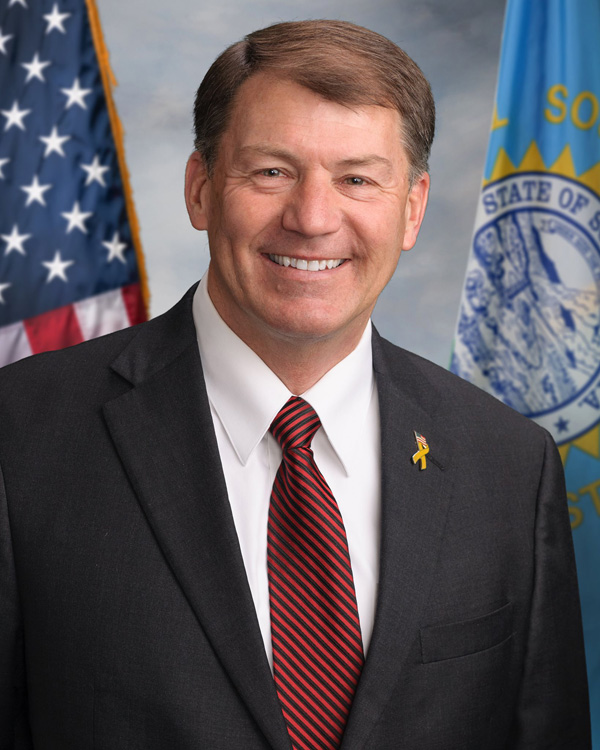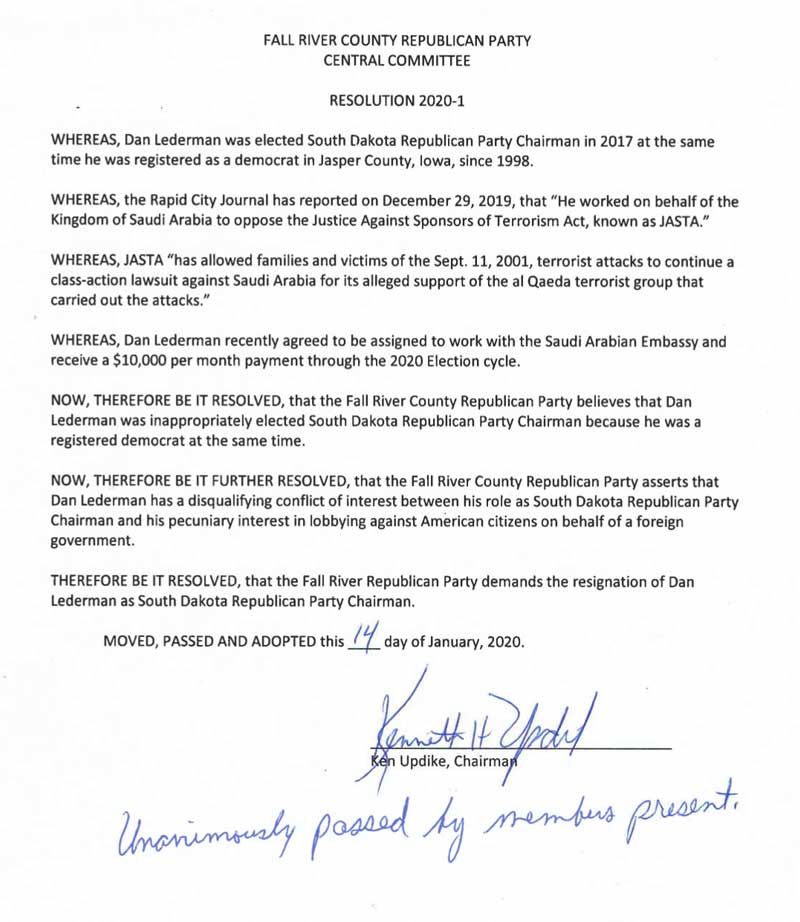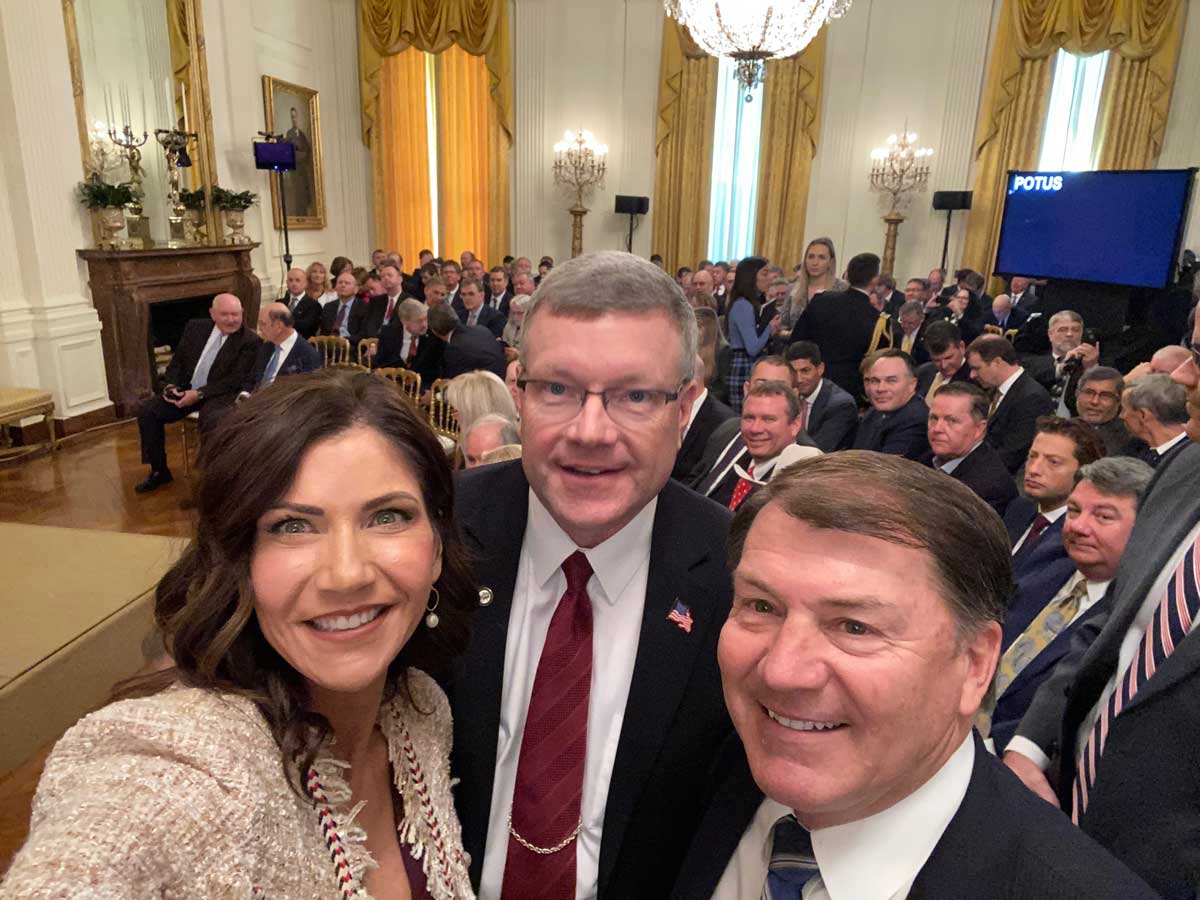US Senator Mike Rounds’ Weekly Column: What Recent Trade Wins Mean for South Dakota


What Recent Trade Wins Mean for South Dakota
By U.S. Sen. Mike Rounds (R-S.D.)
As any South Dakota farmer or rancher will tell you, having a market to sell their products is vitally important to the success of their operations. In South Dakota, we produce some of the highest-quality crops and meat in the world. However, trade uncertainty—coupled with low commodity prices and poor weather conditions—has made life difficult for ag producers. After years of being at the tip of the spear in ongoing trade disputes, South Dakota’s farmers, ranchers and manufacturers saw some major victories in recent weeks that will begin to reestablish and grow markets for them to sell their products.
I recently had the privilege of joining President Trump at the White House for the signing of “phase one” of the U.S.-China trade agreement. Under this agreement, China will purchase at least $40 billion dollars of additional U.S. ag products. The phase one agreement comes at an especially good time for American pork producers. African swine fever has killed millions of pigs in China, driving up demand for pork products exported from the U.S. We still have more to do to make sure China lives up to its obligations under the deal—including stopping them from stealing our intellectual property and technologies—and phase one is the first step in that process.
I recently cast my vote in favor of the U.S.-Mexico-Canada (USMCA) trade deal, which passed the Senate with broad bipartisan support after months of delays by House Speaker Nancy Pelosi. It will replace the 26-year-old North American Free Trade Agreement (NAFTA). The USMCA will give South Dakota’s farmers, ranchers and manufacturers greater opportunities to sell their products in Mexico and Canada, two of our nation’s closest allies and our top trading partners. Trade with our North American neighbors supports 37,700 jobs in South Dakota, and in 2018, our state exported $924 million of goods and ag products to Canada and Mexico. Under the USMCA, Canada will revise its grain grading policies to treat U.S. wheat in a way that is “no less favorable than that it accords to like wheat of national origin.” This will level the playing field for South Dakota wheat farmers, by not allowing either country to have country of origin on wheat quality certificates. Finalizing the USMCA will also provide us with better leverage to negotiate fair deals with other countries around the world. It now awaits action in Canada’s parliament before it can go into effect.
These trade wins come on the heels of the unilateral trade agreement we made with Japan, which took effect at the beginning of January. The U.S.-Japan agreement paved the way for more sales of American beef and other agricultural products. Additionally, the European Union trade negotiator recently called for a reset on trade talks with the U.S. so we can work to increase our markets in Europe. This progress is important for South Dakota farmers, ranchers and manufacturers, who have dealt with trade instability for far too long.
Senate Republicans and President Trump have remained focused on advancing policies that will help to grow the economy, and so far the economy in nearly all sectors aside from agriculture has improved. The stock market has reached record highs, we’ve cut taxes for American families—including costly Obamacare taxes—and rolled back thousands of burdensome, duplicative regulations that slowed business growth. I believe that finalizing trade agreements that give farmers and ranchers a fair deal for their products is one of the final pieces of the puzzle that will allow the economy to reach its full potential.
Free and fair trade is critical for our producers. We are making significant progress toward securing better, fairer trade deals for South Dakota’s ag community than what they’ve had in the past.
###








